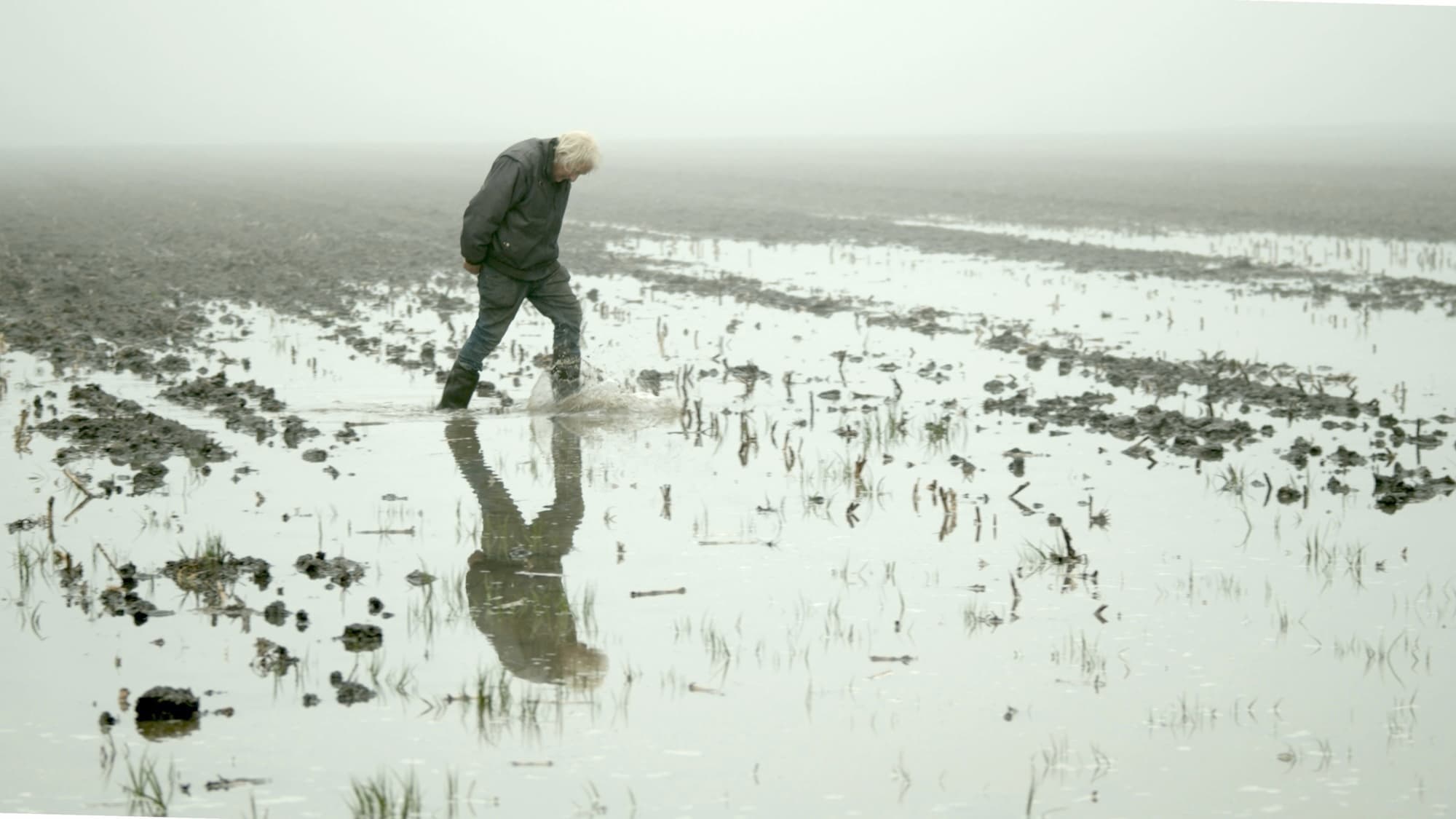
IDFA winner Gerlach now in Dutch cinemas
Several films from previous IDFA editions are playing in cinemas across the Netherlands.
Starting this week, Gerlach from Aliona van der Horst and Luuk Bouwman is playing in Dutch cinemas. Lasty month the film received the IDFA Award for Beste Dutch film.
Other IDFA films now showing are Occupied City (released here as De Bezette Stad) by Steve McQueen, Smoke Sauna Sisterhood by Anna Hints, and Moeder Suriname - Mama Sranan by Tessa Leuwsha.
Gerlach
Gerlach van Beinum is one of the last old-school crop farmers near Amsterdam. Surrounded by the advancing exponents of modernity—distribution centers, highways, multinationals—he moves through the seasons at his own pace. We follow him for several years in his fields on the outskirts of Amsterdam. With the help of his best friend Rinus, he grows potatoes, beetroot, grain, and strawberries, which he sells from his barn. In between these activities, his farmhouse proves to be a gathering spot for neighbors and friends, who share with him their dry wit and simple joy.
Meanwhile, the outside world imposes itself more and more blatantly, in the form of money-hungry entrepreneurs, the municipal government, aircraft noise, the neighboring McDonald’s and a failed harvest due to climate change. But Gerlach doggedly continues: with the help of his brothers, he conducts lawsuits—with occasional success—and sows new crops.
Aliona van der Horst and Luuk Bouwman portray the unflappable farmer with the same dedication and love with which he works his land, sometimes in close-up, sometimes in beautifully composed shots of the shadow he casts on his beloved field.
Occupied City
For his first feature-length documentary, the English director and artist Steve McQueen (Oscar for 12 Years a Slave, 2013; Turner Prize 1999) was inspired by the book Atlas of an Occupied City – Amsterdam 1940-1945 (2019) by the Dutch author Bianca Stigter, who also wrote the screenplay.
For hours, the film goes from door to door in contemporary Amsterdam, while Carice van Houten’s restrained commentary describes what happened during the Second World War at each address. The film includes neither archive footage nor interviews, but devotes time and attention to individual stories of resistance, betrayal, courage and looking the other way, painting a picture of a stratified society that still influences the present.
Ghosts of the past find echoes and contrasts in the current inhabitants – and unanticipatedly in the empty streets, furious demonstrations and large-scale police deployment during the Covid era, in which the film was shot. And in the Holocaust and slavery memorials, which were also unveiled precisely during this period. They are Amsterdam monuments of historic significance–something which can also be said of Occupied City itself.
Smoke Sauna Sisterhood
Few places in the world are better suited for showing our vulnerabilities than the sauna. The women in this intimate documentary bare all, both literally and figuratively, in a remote spot in the freezing cold, somewhere in Estonia, where the smoke sauna tradition is on UNESCO’s list of intangible cultural heritage.
The camera seems to be part of the group as it respectfully and affectionately records the women sharing their experiences—some of these are beautiful, while others are traumatic. No subject is taboo as the women talk of the stillbirth of a child, sexual abuse, coming out, domestic violence, sickness and recovery.
Touching close-ups in the sweltering sauna alternate with wide shots of the women running naked in the snow, kindling the fire, playing music and smoking pork. An elderly woman talks about the sexist traditions of her younger days, presenting a stark contrast with the intense sense of support and strength that the women feel in this safe, therapeutic sauna.
Moeder Suriname - Mama Sranan
In Mother Suriname – Mama Sranan, filmmaker Tessa Leuwsha uses a stream of fascinating colorized archival footage to illustrate the lives of Surinamese women like her grandmother, who was a washerwoman.
She’s born in a hamlet in 1905 to a white mother and a black father—a disgrace. Her father is forced to leave and her mother also disappears. She’s despised as a half-caste, does not go to school and soon becomes aware of the state of colonial relations (“we work and they watch”). She has a child whose father is always elsewhere, working for the Dutch. Determined to make the most of her life, she moves to Paramaribo, where she has three more children she raises on her own.
Meanwhile, she sees her homeland moving towards more self-esteem. Before Suriname’s independence in 1975 however, all her children move to the Netherlands—and she eventually follows them, with sorrow in her heart: “In Holland, paradise is like a shadow, just in front of you or behind you, never with you.” Still, strong-willed as she is, she finds a place where she connects with her homeland, her spiritual roots and herself.
